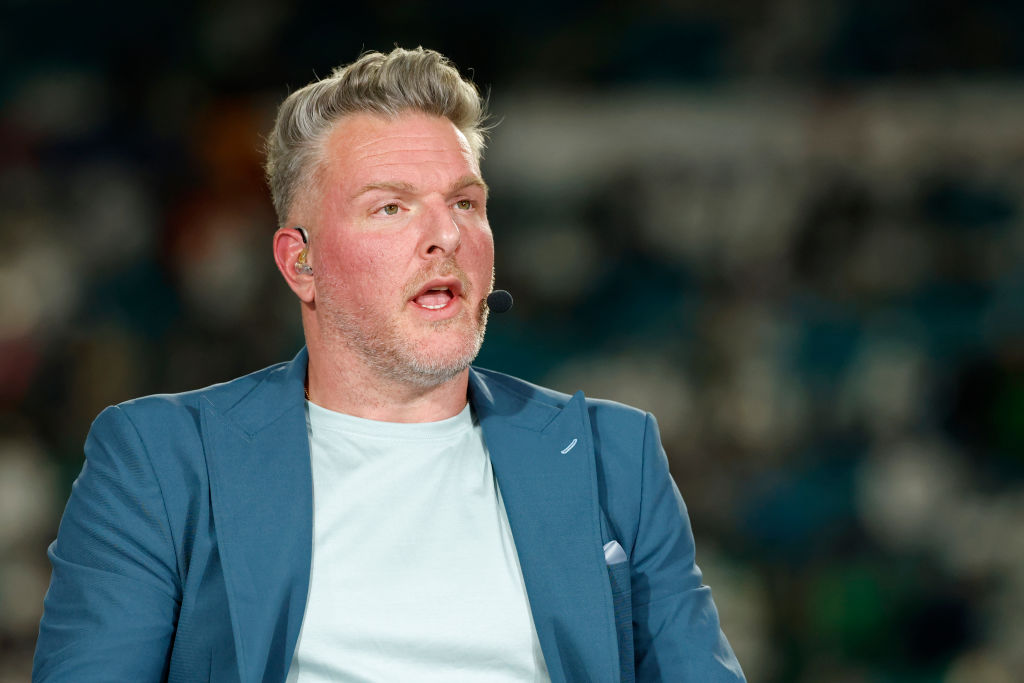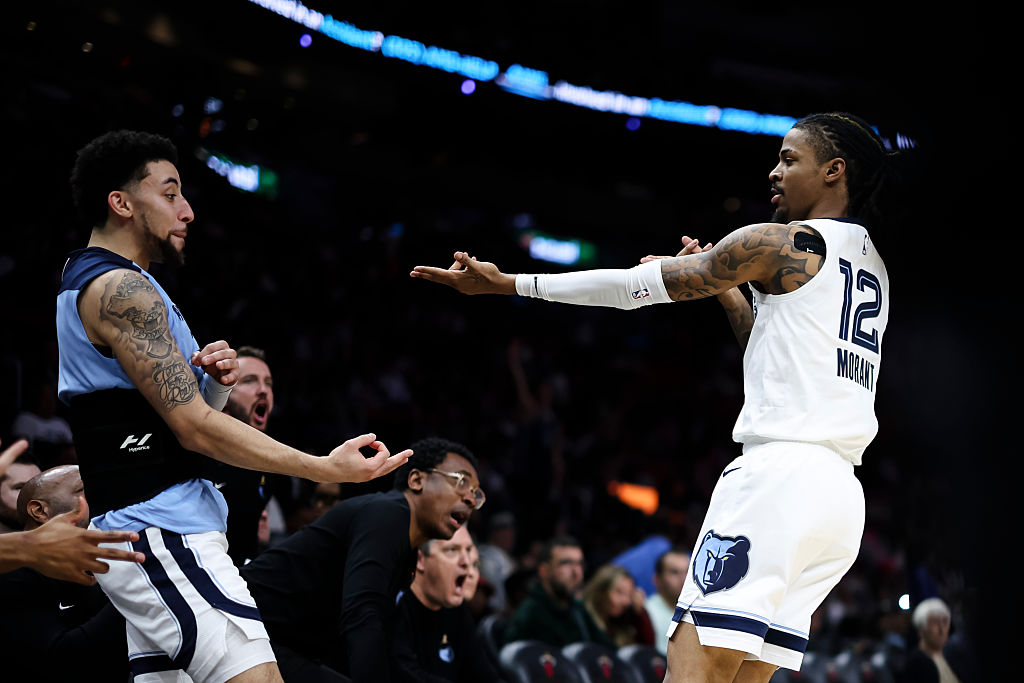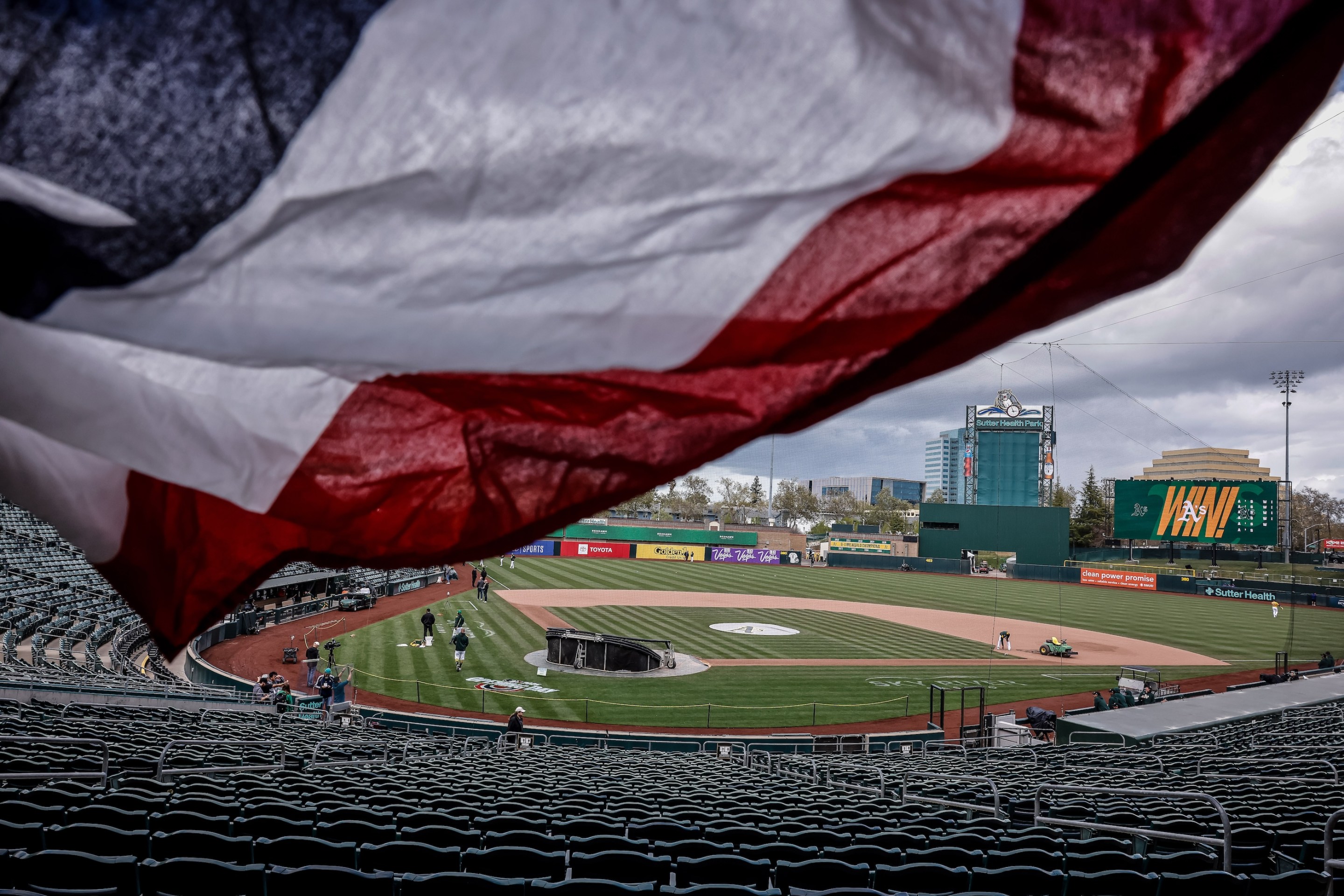The time has come to bury the Phoenix Suns, who barely lived and are now dead. When they made the Finals three years ago and then got sold to an aggressive, engaged billionaire, it seemed as if they would perch atop the Western Conference for years to come, a position they attempted to consolidate by moving as aggressively as possible. Instead of winning anything of value, they're drawing dead in a conference that has passed them by and now face one of the bleakest futures in the NBA. They are quite the cautionary tale.
This all starts in the summer of 2020, when a Devin Booker–led Suns team ranked 13th in the West got invited to the Orlando pandemic Bubble and—helped along by a good deal of Cam Payne nonsense—won every one of its eight games there. The basic idea that a team built around Booker could win a bunch of games that mattered had been unproven until the Bubble: He'd scored 70 points in a game before, in a meaningless March 2017 loss (only two Suns who played that night are now still in the league, while another two are active assistant coaches), but had never even cracked 30 wins in any of his four pro seasons to that point. That tiny segment of Mickey Mouse pandemic basketball is the strongest case against Bubble hoops being a flimsy, inconsequential construct rather than a real end to a real season, as the Suns did build on the foundation by trading for Chris Paul.
Having an adult in the room changed everything. The various minor deficiencies among the Suns' bevy of wing players (Jae Crowder, Cam Johnson, and, critically, Mikal Bridges), and the various major deficiencies of the team's single big man, Deandre Ayton, did not matter as much now that they were all being organized and conducted by a still late-peak Chris Paul. It's been largely forgotten, because of the game that would end Paul's Suns career, but he was so great for Phoenix. He finished fifth in MVP voting that 2020–21 season, and he took care of all the dirty stuff for the young team, scrapping for boards (he was third on the team in defensive rebounds per game, behind only Ayton and Crowder), dishing out assists, and hitting what seemed like every single midrange jumper he had to take when the kids couldn't get a good shot for themselves.
Phoenix stormed through the West playoffs, coming back from a 2-1 series deficit against the defending champion Lakers, sweeping a Nuggets team with the worst guard rotation ever to make the second round of the playoffs, then mercy-killing a Clippers team missing Kawhi Leonard. That they lost to the Bucks in the Finals was somewhat disappointing, though that was the year Giannis Antetokounmpo proved wholly unkillable; the Suns could leave the Finals with their heads held high, knowing it took two all-time moments to dispatch them.
All that history is worth laying out because the 2021 Finals turned out to represent the high point for the latter-day Suns; everything that followed turns out to have been part of the decline. They had a roster built to play the new style, and though Paul was the best player on the 2020–21 team, the thing that made those Suns special was their gnashing corps of two-way wings. With Bridges, Johnson, and Crowder patrolling the perimeter, getting good shots on them was a nuisance, and each of those three guys could capably put away the open shots Paul manufactured for them. The style was not super close to the cutting-edge stuff currently en vogue, though you can see the common DNA: The Suns were special because of the ways they applied pressure.
It is tempting, in retrospect, to credit hubris for their Game 7 turbo-collapse against the Dallas Mavericks in the 2022 conference semifinals; to speculate that the Suns called down Luka Doncic's masterpiece like an avenging asteroid from the heavens. But the hard lesson from that moment was that the Suns simply did not have a player as good as Doncic. Everyone on the Suns was awful in that Game 7—even if, in fact, Chris Paul did hit a huge three to cut the lead to 42:
The Suns allayed this by, seven months later, trading everything they had for Kevin Durant. Mortgage magnate Mat Ishbia had taken over the team in December 2022, and he was determined to stomp down the accelerator and win a championship by pure aggression. The Suns had been so close to winning a title; Ishbia's logic went that surely adding one of the best players ever to shoot a basketball to the core of that team would make it such a clear championship favorite that the risk would be more than justified. The preceding Robert Sarver ownership regime had been defined by stinginess (and a simultaneous climate of misogyny and racism); Ishbia caring enough to pay the league's luxury tax and make big moves seemed like it could change everything for the Suns. The irony here is that the Suns would probably be in a better position had Sarver never been forced to sell the team, since the Durant trade turned out to spell their doom.
The reasons why are fascinating. Basically, the immediate-term issue with the Durant trade from the Suns' perspective was that it represented a huge bet on the wrong guy: not Durant, but Ayton. In an omen of every subsequent Ishbia transaction, the Durant trade curtailed Phoenix's ability to build around the margins, fill out the bench, and make moves, risks the organization accepted on the theory that a rigid roster would not be a problem if it was filled out by hardened killers. Ayton caught a bit too much flak for being more dedicated to Call of Duty voice chat than to the quest for an NBA title—to the point that fans, pundits, and even (reportedly) some inside the organization pinned the Suns' 2023 second-round crash-out against the eventual champion Nuggets on him—but the Durant trade overstretched him in the first place. If you trade four first-round picks, a guy who'd soon be traded for five first-round picks, and other valuable stuff for one guy, you are leaving yourself barren. The Paul-led teams were great because they accommodated everyone's flaws; the Durant-led teams fell short because they could not.
For the 2023–24 season, out went both Ayton and Paul, and in came Bradley Beal, in essentially a concentrated version of the Durant trade. We have spent most of our time considering roster flaws, but the Beal trade is an occasion to diagnose how broken the Suns' style had become by this point. Phoenix abandoned all notions of balance, instead treading down the path of the real hooper: The theory of their 2024 and 2025 teams, neither of which won or will win a single playoff game, is that sacrificing playmaking, defense, rebounding, speed, movement, and ingenuity (to name a few traits the Suns no longer exhibited) was worth it because their roster could Get Buckets. Durant is the best Getter of Buckets I have had the pleasure of watching in my time as a basketball fan; Booker had matured into a Bucket-Getter extraordinaire; and Beal too could identify Buckets, then Get them. The team accepted the gambit that by necessity—because they'd abandoned all the above stuff—they'd mostly take difficult shots, but that maybe this would not be a problem since they had three guys who were great at making those difficult shots.
The problem—well, one problem—is that the game changed around them, in the totally opposite direction. The best teams right now (Boston, Cleveland, Oklahoma City) are egalitarian and hyper-fast; Phoenix, meanwhile, had doubled down on a plodding, heliocentric style, the sort that maybe used to work in decades past. Not only were they restricted from all but the tiniest personnel moves by their stuffed cap sheet and barren draft cupboard, they had sacrificed all that flexibility to build a roster that could only play yesterday's game. Head coach Monty Williams couldn't change that, and neither could Frank Vogel or Mike Budenholzer. They were playing what they thought was playoff-style basketball, slow and methodical, without any of the markers of an actually good team.
The particularities that followed are occasionally funny but less salient; it was over last year. The Suns had Booker run the offense, and he was decent at it but it never mattered. They signed Tyus Jones to dribble the ball past half-court, make one pass, then stand there, which he is good at but which also has almost no pro-basketball value in 2025. Beal, who has a no-trade clause, has been awful. The Budenholzer–Jusuf Nurkic situation was incredibly toxic this season, before the Suns dumped the latter on the perhaps equally depressing Charlotte Hornets.
The 2024–25 Suns are not technically out of the West's play-in anti-race: They're one game behind the zombie Mavericks, having now lost their last four games by a total of 94 points, highlighted by Sunday's 39-point trashing on their home floor by the Houston Rockets. But even being anywhere close to that sort of limbo represents in itself a disaster. This team was built to compete for championships, as any Kevin Durant team should be, but instead has given up. Phoenix does not control its own first-round draft pick until the year 2032—the year Booker will turn 36 years old, Beal will turn 38, and Durant will turn 43—and the Beal trade cleaned them out of most of their second-round picks, too. They will probably trade Durant this summer; it will probably not matter.





